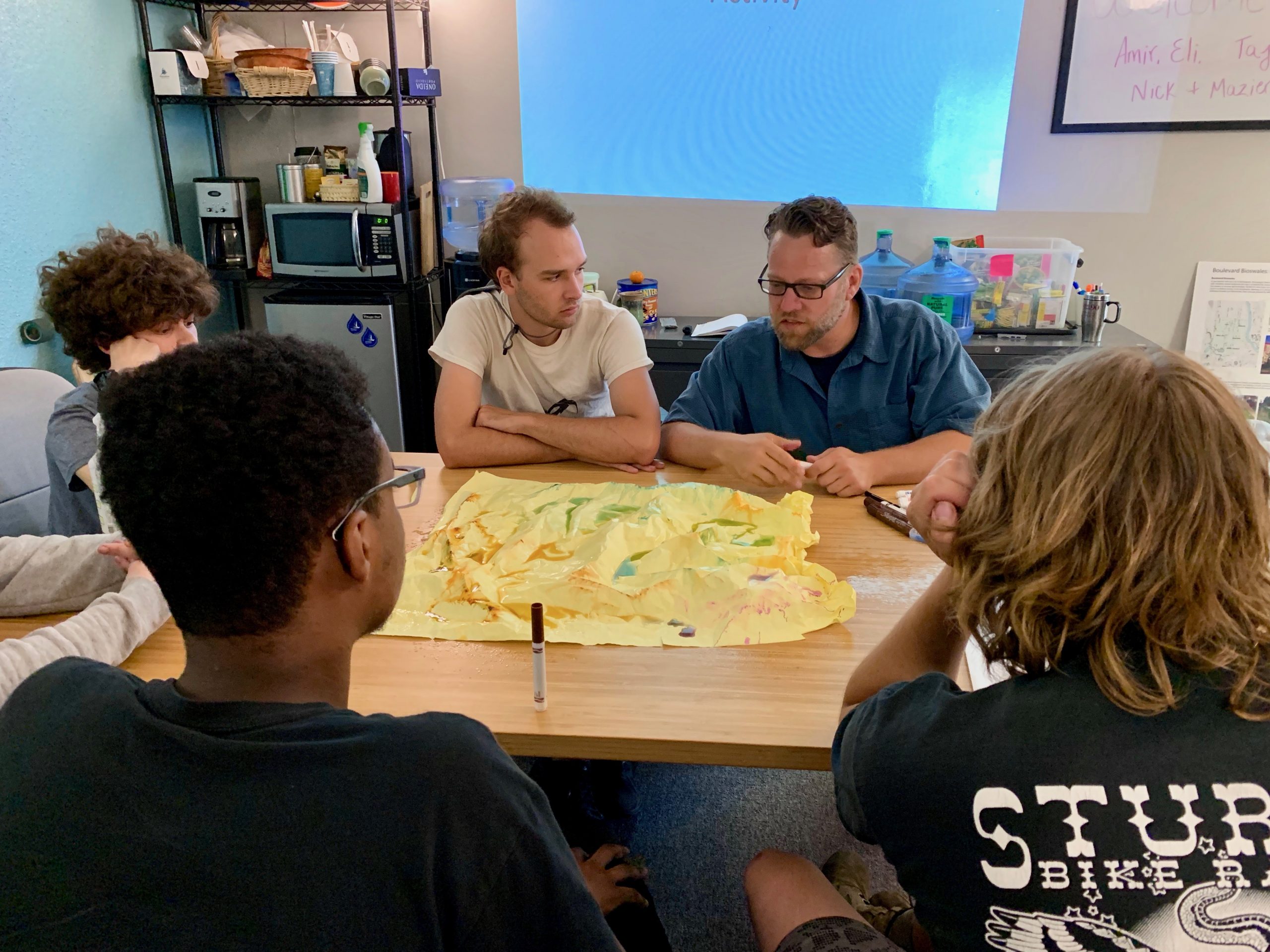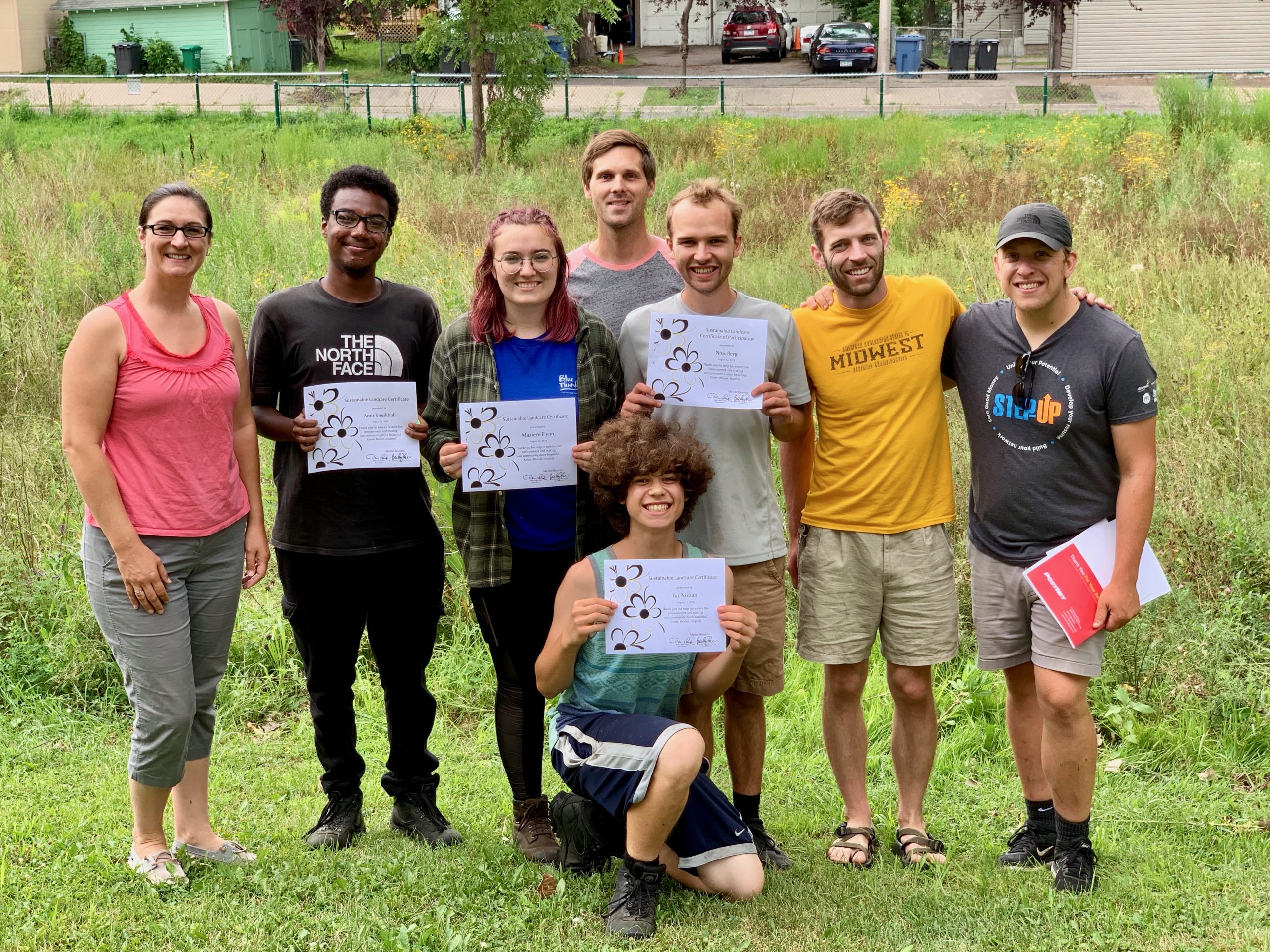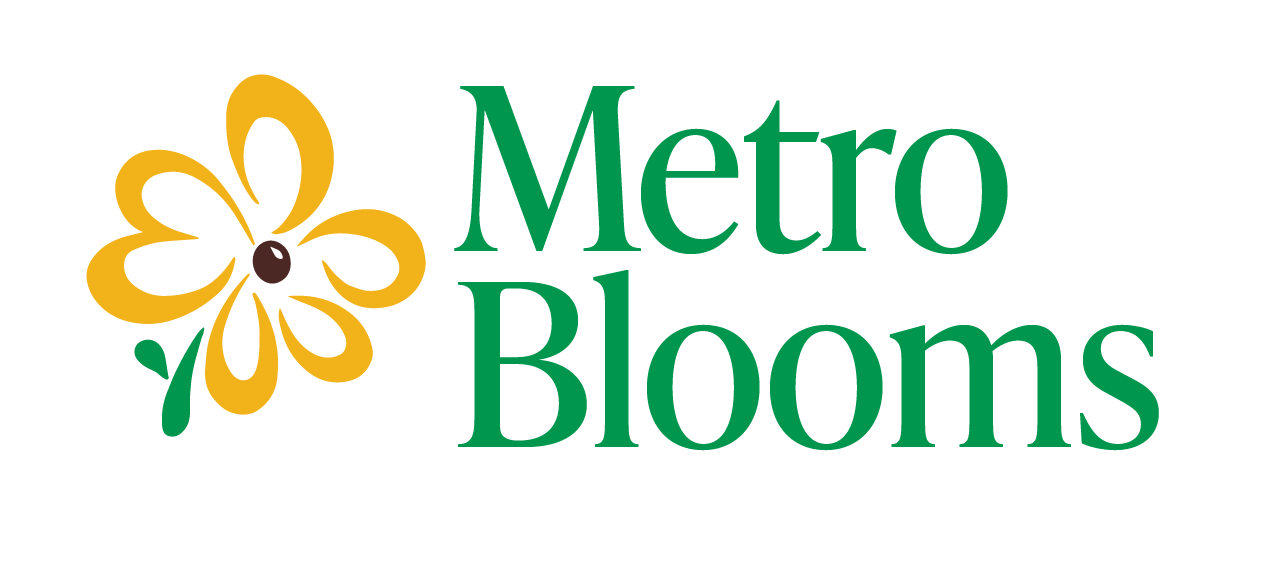More and more, people understand the value of a raingarden as a green solution to preventing runoff that leads to water pollution and downstream flooding. At Metro Blooms, we are delighted to see raingardens becoming more common. Unfortunately, we see many raingardens — including ones that we designed and installed — in need of some TLC. Left to their own devices, neglected raingardens quickly become unattractive weed beds; moreover, they can stop functioning to divert and soak in stormwater.
“A lot of stormwater infiltration practices have been installed because people want to do the right thing. But they don’t necessarily know how to maintain them,” says Metro Blooms Landscape Designer Tara Hanlon-Nevins. She theorizes that many people are hesitant to weed a raingarden because they aren’t sure what to remove, and consequently may not weed at all.

Tara manages a new Blue Thumb training program intended to meet this challenge. The goal is to teach participants — many of them youth and young adults in underserved communities — employable skills in inspecting and caring for raingardens and other green infrastructure, all within a framework of eco-friendly landscaping practices. People who take part in the three-session program receive a Sustainable Landcare Certificate, making them more attractive to potential employers in the growing green economy. Private landscaping businesses and maintenance staff for cities, parks, school districts and others need these skills.
Participants in the program first receive Stormwater Basics, learning about watersheds and how water travels in our urban environment. They also learn how raingardens are built, how they work, and how to inspect them to ensure they function properly. An important part of the program is identifying weeds, a major culprit of dysfunctional raingardens, and then choosing a way to manage them (without chemicals, if possible).
Funding from the Hennepin County Green Partners program and the Minnesota Pollution Control Agency supported the program this year. Other partners have also helped us launch the program. Our first participants came through the Mississippi River Green Team, Conservation Corps MN & Iowa and the Minneapolis-based StepUp internship program. In all, Tara estimates giving out 35 certificates in the program’s inaugural season.

Elements of the program have been adapted in other work we do. We teach raingarden installation and maintenance to small contractors we work with in North Minneapolis. We also give the stormwater workshop to residents in affordable housing communities who serve with us as stewards in our collaborative work with them to redesign their outdoor spaces.
Tara looks forward to developing the program further once she receives feedback from this season. In the future, she sees potential to offer training in other markets, including landscaping businesses, maintenance staff, even individuals who simply want guidance for their own raingardens or for volunteering in the community.
But one thing she is sure about is the need for more people to learn these skills. “This is an essential and emerging field within the world of green infrastructure,” Tara says.” We want to support the value raingardens provide to us by maintaining these environmental investments with sustainable and proper care.”
For more information about the program: tara@metroblooms.org
— Aleli Balagtas, Metro Blooms Reporter, aleli@metroblooms.org
